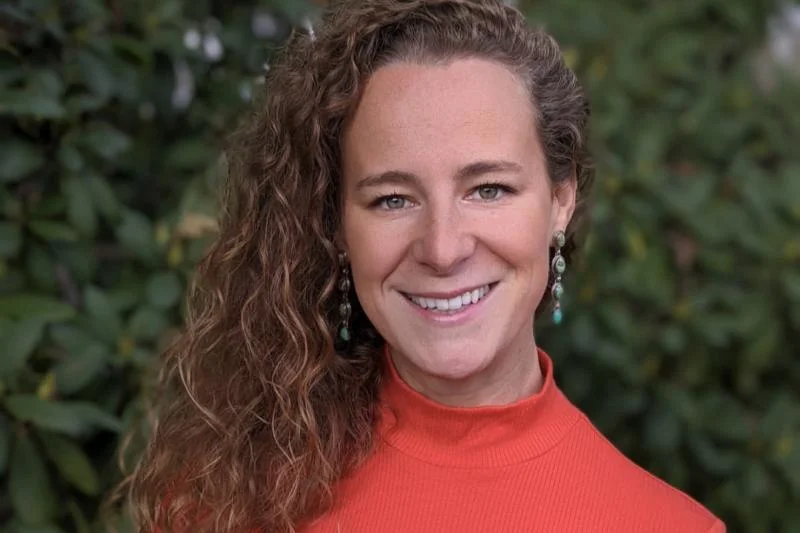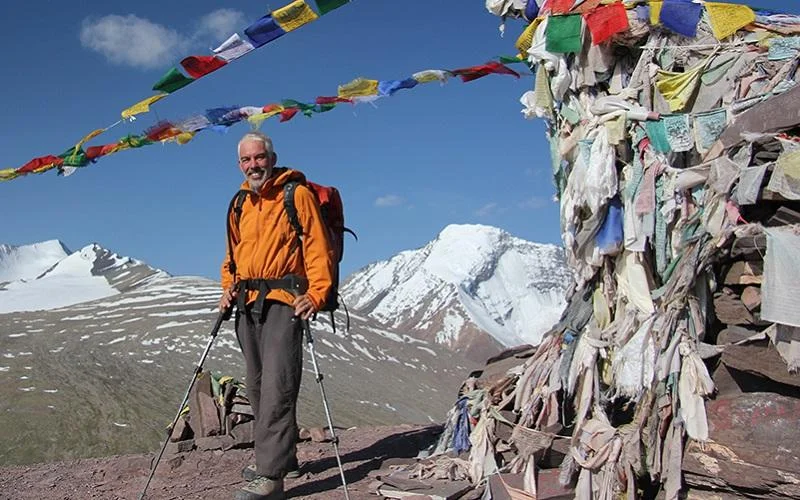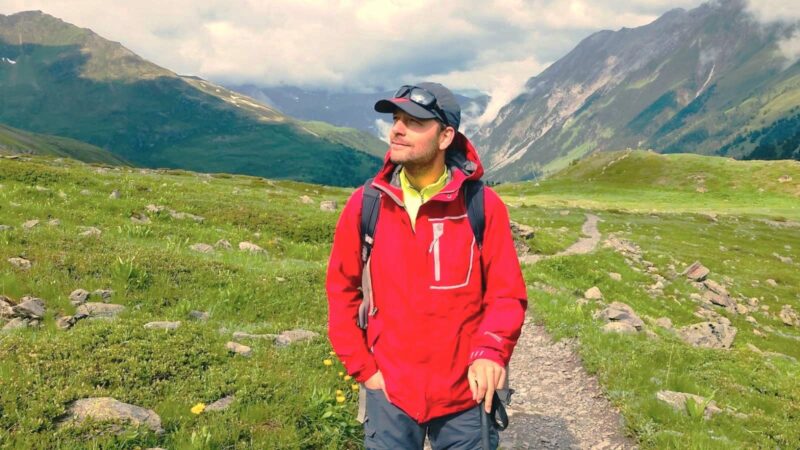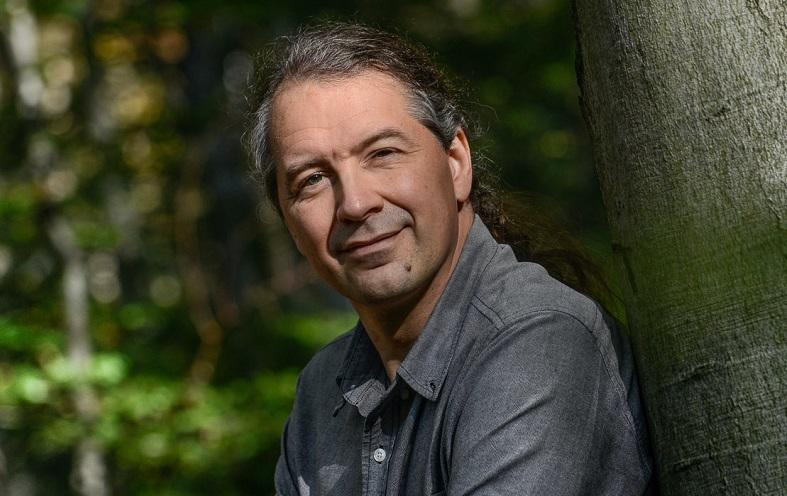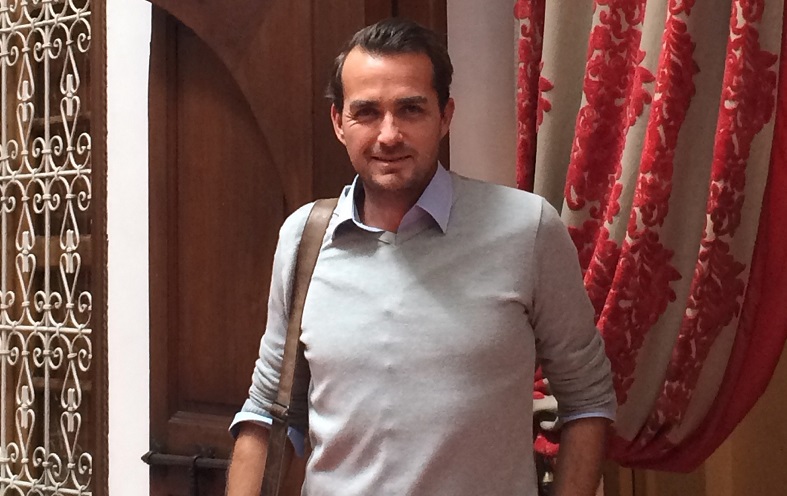
Social sustainability is often overlooked in discussions about sustainable development. Christof Burgbacher in this interview illustrates why we should pay it more attention.
He also discusses the current state of sustainable tourism in Morocco and shares how a management traineeship in Costa Rica became an eye-opening experience for him, showing how much is possible when hotels genuinely care about their local environment and their people.
Christof is an independent consultant and the founder of Elementerre, specialized in advising companies, organizations and destinations on sustainability. He is referenced by the program One Planet Travel with Care of the UNWTO and is a member of the “Global Leaders Network” of Green Destinations.
Christof, on your website you mention that Costa Rica’s approach to sustainable tourism was an eye-opening experience which had a lasting impact on how you see tourism now. What made your visit such a transformative experience?
That was in 2006. I got the chance to do a management traineeship at Cayuga Collection. Cayuga operates luxury hotels in a comprehensively sustainable way. Until then, sustainable tourism for me was limited to small lodges in rural areas, with the consequence that guests would have to put up with a lot of restrictions in order to spend a sustainable holiday.
Cayuga has shown me the opposite, that luxury and sustainability are not mutually exclusive. Natural products, natural air conditioning, employees who feel comfortable always contribute to a positive guest experience.
I was particularly impressed by two things.
- Cayuga always tries to find a sustainable alternative to classic products and services.
- The motivation of the employees to contribute to the sustainable development of the hotel. I have never experienced such motivated employees anywhere else, and that’s because they are integrated in the sustainable development of the hotels.
I was also able to witness fascinating life stories and careers. Cayuga invests a lot in the education and training of its employees, enabling them to pursue a career that offers them and their families prospects.
Before experiencing Cayuga, the hotel industry for me was about providing people with a pleasant moment. I come from the luxury hotel business, and often had the feeling that my work made life more pleasant for people who already have everything they need.
My internship at Cayuga gave me a new perspective and showed me that the hotel business can be much more.
Having worked in renowned hotel groups in France, Germany and Costa Rica, what inspired you to choose Morocco as base for your consulting business?
I have to admit, I didn’t really choose Morocco. I was offered the position as reservations and yield manager for the opening of a luxury hotel in Marrakech.
The idea of starting my own business in sustainable tourism came when I discovered the potential of the country.
Tourism has played a major role in Morocco for a long time. In addition, Morocco has an extreme wealth of natural products, in terms of food, beauty and health products.
Certainly, my decision was also influenced by the fact that already in 2012 Moroccan politics documented the will to attach greater importance to sustainability in tourism.
At the same time, I also felt that there was a lack of knowledge and solutions to actually put sustainability into practice.
To this day, many people tell me that they consider this to be a very courageous step. I would find it crazy not to have tried.
Are there significant differences or similarities in how sustainability is approached in Costa Rica, compared to Morocco?
That’s difficult to answer. There are already very big differences within these regions. Between the sustainable development of Costa Rica and Nicaragua, for example, there are extreme differences. Or in Europe between countries in Scandinavia and Eastern Europe.
It’s therefore best to look at individual destinations to see how they approach the issue. In Europe, leading cities in sustainability would certainly be Copenhagen or Edinburgh.
With the exception of Costa Rica and now also Slovenia, hardly any destination has succeeded in positioning itself as a whole, as a sustainable destination.
Morocco would certainly have the potential for this and would benefit extremely from it economically. However, here too sustainability is almost exclusively limited to rural areas.
What does social sustainability mean for you? What role does it play nowadays in the context of sustainable tourism?
Social sustainability means dealing with people. In the tourism sector we talk first about employees and the local population. This should be a matter of course in tourism, as it is one of the economic sectors in which the human factor will not be replaceable in the long run. The employees always make the decisive contribution to a successful guest experience.
If you ask 100 people today what they mean by sustainable tourism, I am sure that at least 80 will equate it with ecological tourism.
Also in the media, and even in the professional world, the terms are handled very uncleanly and thus contribute to a very vague picture. This clear distinction is important to me, because it would help to attach more importance to social sustainability.
A company or a destination can only say it is “sustainable” if it actually takes measures in the area of ecological and social sustainability.
Particularly in the hotel and restaurant sector, we have extreme deficits in staff management and training, and this worldwide. Although tourism is one of the largest employers in the world, only a small part of those jobs are actually stable and good enough to open up a real perspective for young people.
In Germany, for example, the industry is urgently looking for workers in the housekeeping, service and kitchen departments. These departments are very unattractive for young people and in times of very low unemployment they prefer to search for a job in other sectors.
In this context, I find it unfair to accuse the young generation of convenience or even laziness. The sector should be more honest with itself and needs to work hard to become more attractive for young people.
In countries like Morocco, this misguided personnel policy has the consequence that the sector suffers from a strong staff fluctuation, and tourism has not the best reputation as employer here either.
Which are the main barriers slowing down progress towards social sustainability?
The biggest problem I see is that it is simply forgotten. There have been a few surveys recently that have shown that social aspects are becoming more important for guests, but the focus is still on meeting the demands of ecological sustainability. So the pressure on businesses and destinations to become active in this area is not yet very high.
Another obstacle is that social sustainability appears to be more abstract than ecological sustainability, not as easy to measure or to “fix” through technical solutions, for instance. Cost-benefit calculations are more difficult to establish and measures which can be taken are often very complex and require long-term monitoring, which means much more time-consuming.
To make matters worse, we have too many hotel managers and owners, especially when it comes to SMEs, who do not have a professional hotel background. This lack of professional experience has little effect on the design or equipment of a hotel, but impacts the staff management and communication strategy. Necessary knowledge is often missing, and too little importance is attached to the topic.
How can local communities be better integrated into tourism development?
Here, too, we must certainly first look at the respective cultural context and the circumstances. The integration of the population in Berlin will be different from Marrakech, or a Berber village in the Atlas Mountains.
Regarding tourism development and sustainability, we should stop assuming that we always know what the local population really wants or needs. The actual needs and demands of the local population can only be identified and met through participation processes. These must of course be adapted to the respective circumstances and problems, and have to be permanently installed.
Without this participation, the acceptance of tourism and visitors is at risk. In Germany and Europe more broadly, conflicts between tourism and the local population are increasing, especially in the cities.
By now, many regions worldwide depend on tourism; yet, many of these regions also suffer from its consequences. In both cases, only the involvement of the local and regional population can mitigate these conflicts and add value for the stakeholder groups.
In Morocco there are different tour operators who try to establish a direct contact between tourists and the local population. In most cases the intentions are good, but often the actual needs of the people involved are not taken into account.
If we design these participation processes professionally and handle the results correctly, we can put tourism development in a positive light again. This seems to me to be crucial, especially in view of the importance of the sector.
I am currently founding a company together with my father and my brother, to fill this gap. My father has a background in tourism policy and my brother is an expert in very innovative participation processes. By combining our skills, we want to offer companies and destinations the opportunity to develop sustainability strategies that are based on the needs and demands of the population, employees and guests.
What opportunities does social sustainability offer to tourism companies?
From a business point of view, an investment in social sustainability is an investment in employees and thus in the service quality of the company. In today’s hunt for “likes” and positive comments, employees are the decisive factor. Properly trained, they can solve many problems that guests have during their stay and sometimes even turn bad moments into a positive experience.
In Morocco I am often asked by hotel managers: “What if I train my employees and they then leave the company?” I always answer: “And what if you do not train them, and they stay?”
In Morocco, I see the greatest potential in middle management. I consider the role of department heads in imparting competencies to be very important. They should also play an important role in the sustainable development of a hotel. In smaller hotels and riads where you won’t find departments as such, the manager should take on this role.
Unfortunately, this is rarely the case and these people are often only entrusted with control tasks.
A solution could be to offer training to managers and head of departments in hotels, in which the aspects of “total quality” – i.e. the combination of sustainability and service quality – are conveyed. These trainings must, however, be adapted to different company sizes and types.
In times of overtourism and “flight shame” I see a bigger investment in social sustainability, not only as an opportunity but as a necessity. Destinations like Morocco are dependent on air travel. They should therefore give potential guests the opportunity to generate a positive impact with their trip, not only ecologically but also socially.
We should not forget that traveling allows people to know each other and helps to develop a better understanding for other cultures. Protecting our environment is surely our biggest challenge, but I really don’t want to imagine a world in which people stop traveling to other countries.
Your thoughts about the sustainability of Morocco as a destination? Which challenges does the country face and which initiatives are adding to its sustainability profile?
Morocco has had the topic of sustainable tourism on its agenda since 2010, but very much limited to rural areas. There are also many projects and programs in the area of development aid. Unfortunately, they often don’t have any impact as there is only little or no competence in the field of tourism within the active organizations, and because communication and marketing are not considered in the conception of the projects.
In addition, there are some scattered initiatives and private projects, but there is a lack of a coherent mission statement.
Morocco has certainly the will to position itself as a sustainable destination, but if they want to be a golf destination at the same time and become more attractive for cruise shipping, we cannot speak of a clear orientation.
Companies are not really being helped with this issue either. Some years ago, a cooperation was concluded with a well-known sustainability label that has already certified several hotels in Morocco. However, there is a lack of professional structures, both in terms of advice and audits and, above all, in terms of communication. In many cases, the result is a sign on the reception desk, but nothing more.
I think that the young generation sees the topic of sustainability not only as a necessity but also as an opportunity. Perhaps not yet so much in tourism, but certainly in culture and the creative industries. I really hope that this generation will be given a chance and that they will make use of it.
Anything else you’d like to mention?
There’s a subject which I consider as a problem for sustainable tourism in general. In tourism, there is a strong black-and-white thinking about sustainability: either a company is sustainable or not. Apart from the fact that this contradicts the actual principle of sustainable development as an on-going process, it has the consequence that it excludes a large number of businesses from becoming more active.
Certain companies cannot be described as sustainable on the basis of their conception – for example, a hotel with an adjoining water fun park. The water and energy consumption would be so enormous that it is impossible to speak of sustainability in this area. In all other areas (waste reduction, staff management, local integration), however, that same hotel might be a champion in sustainability.
Other companies, especially small and medium-sized ones, are often afraid of taking the step towards greater sustainability because they know they cannot live up to this demand for perfection.
I estimate that the “Generation Fridays for Future” will deal very radically with the topic of green-washing in tourism, and will reward honesty and gradual development. So we should get away from judging what is sustainable and what is not, and instead focus on what a hotel actually does for sustainability.
And: we should leave the assessment to the customer. In the end, they are the ones to decide whether the commitment of a company meets their demands and ideas of sustainability, or not.
Thank you, Christof
Connect with Christof Burgbacher via LinkedIn, Facebook or Instagram. More about Christof’s consulting work and services also on his website.
Enjoyed our interview with Christof Burgbacher? Thanks for sharing!



